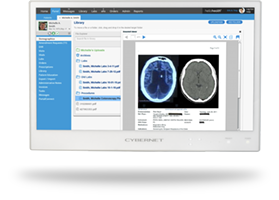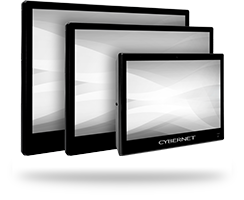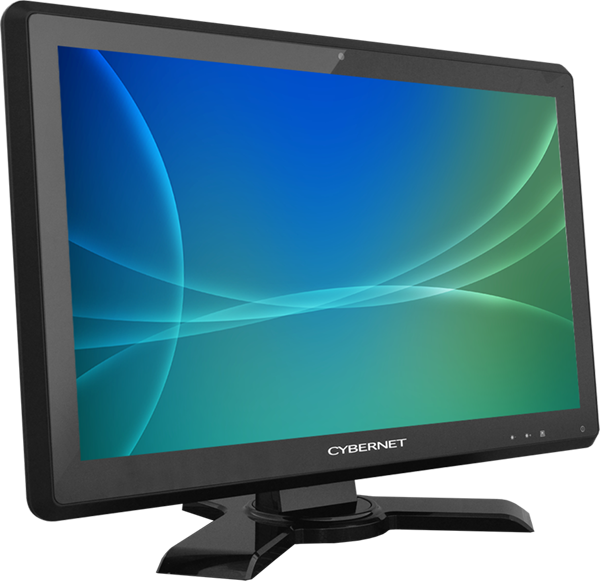When it comes to cybersecurity, most people think of hackers, suspicious emails, and ransomware. However, protecting against prying eyes and “visual hacking” is just as critical. That’s where privacy screens come in.
What are Privacy Screens, and How Do They Work?
A privacy screen, also known as a privacy filter, is a specialized layer of polarized plastic that reduces the viewing angle of the computer monitor it is attached to. Made from polycarbonate or acrylic plastics, privacy screens consist of numerous angled slats or panels in the plastic’s structure. This design blocks light from hitting the screen at certain angles, making it impossible to see anything on that screen. Someone looking at the monitor from directly in front of it can see any information on the display just fine, but anyone standing to the side would only see a black and empty screen.
Privacy screens are critical for preventing visual hacking. The name itself is a bit of a misnomer, as there’s no actual “hacking” involved in visual hacking. Instead, it is when a malicious actor spots confidential information on a screen and memorizes or records it for illicit use later. This may include internal security information, such as passwords or email addresses, company secrets and intellectual property, or personal data such as private health information. By limiting the field of view for a computer monitor, privacy screens significantly reduce the opportunities for visual hacking.
There are several methods for adding a privacy filter to a computer. An attachable filter is precisely what the name implies: it is an additional layer that goes over the screen, and can be attached or removed as needed. Permanent adhesives are another option, and are connected to a monitor 24/7. This is particularly useful for monitors that need extra privacy at all times, such as all-in-one medical PCs that are constantly displaying sensitive information.
Sectors that Use Privacy Screens
Any business or group that regularly works with sensitive information should consider investing in privacy screens for its computers. The following sectors are those most likely to need the security they provide.
Healthcare
Healthcare organizations constantly work with sensitive private information, ranging from patient health records to contact information and credit card details. Unfortunately, much of this information is often displayed on screen when providers are busy or distracted with a patient, leaving these details untended and vulnerable to visual hacking. Privacy screens are not just essential for preventing this from happening, but also a key component of maintaining HIPAA compliance, which mandates that healthcare groups must take steps to ensure access control for private health information.
Industry
While industrial businesses are less likely to experience visual hacking compared to those in other sectors, due to how little public interaction they tend to have, it is still a valuable precaution to take. Privacy screens are best suited for industrial panel PCs used to display or review valuable information. This often includes sensitive data related to clients or intellectual property, such as blueprints and prototype schematics.
Enterprise
In the business and enterprise sector, privacy screens are most frequently used to protect sensitive financial information. For example, banks will install privacy screens on their business computers and monitors to prevent unauthorized individuals from spying on people’s bank accounts. This helps keep vital information, such as account numbers and passwords, from being stolen.
Benefits of Privacy Screens
Implementing privacy screens requires relatively little investment, but pays for itself every time it prevents a data breach or identity theft from occurring. The greatest benefits of using privacy screens are:
Protection Against Visual Hacking
First and foremost, privacy screens directly counter the threat they’re intended to address, which is malicious actors trying to peek and pry. Simply by limiting the field of view of a computer monitor, IT teams can reduce the chances of unauthorized individuals accessing sensitive data. This helps prevent data breaches, ensures consumer confidence, and protects business partners from the ever-growing threat of cybercrimes.
Different Options for Integration
One significant advantage of using privacy screens is that there are multiple options for implementing them. A privacy filter can either be applied directly to the monitor’s screen by the original equipment manufacturer (OEM) as a permanent fixture or attached as a separate layer or sheet that employees can clip to the screen or remove as needed.
This lets you choose the privacy option that best fits your needs. If you require constant protection against visual hacking, you can opt for the permanent integration option. On the other hand, if you need to switch between security and easier collaboration, you can implement the attachable sheet solution.
Ease of Use
A common complaint about cybersecurity solutions is that they are a hassle for employees to use. Passwords, security keys, two-factor authentication, and other forms of access control and IP protection add to the mental load and responsibilities that workers have to deal with, rather than their actual work assignments. A privacy screen, however, requires no thought or effort on the part of the user to do its job, in the same way you don’t have to think about how a building’s roof keeps water out.
Challenges for Privacy Screens
While privacy screens are a relatively easy security solution to implement, they do still have specific considerations that must be accounted for. When choosing to use privacy filters, make sure you address the following challenges:
Collaboration on the Same Device
By limiting the field of view of a computer display, privacy screens can make it difficult for multiple people to view the display at the same time. While this is obviously the point for security reasons, it can also make it difficult for numerous workers to view information displayed on the screen, thereby hindering collaboration. If this is a concern, it may be better to invest in attachable filters rather than a permanently integrated screen.
Cleaning and Accidental Damage
One significant issue with privacy screens is that they can be easily damaged by mishandling or improper cleaning. This is a critical issue in healthcare, where every surface, including computer screens, must be constantly cleaned and disinfected. Unfortunately, these harsh disinfectants can easily damage the plastic structures of the privacy screen, rendering it useless. The best solution for this issue is to either use a detachable privacy screen or work with an OEM to place the privacy screen behind the monitor’s glass, thereby protecting it from any liquids or chemicals.
Computers with Integrated Privacy Screens from Cybernet
What is a privacy screen? It is a critical yet often unappreciated aspect of cybersecurity, providing a layer of protection that no firewall or encryption program can offer. While using privacy screens is simple enough, how they are implemented can be the genuine hurdle.
If your company or healthcare group is seeking computers with integrated privacy screens, please contact Cybernet Manufacturing. As an OEM, we can customize our products to better fit your exact needs, including privacy filters, performance upgrades, and a selection of I/O ports.


